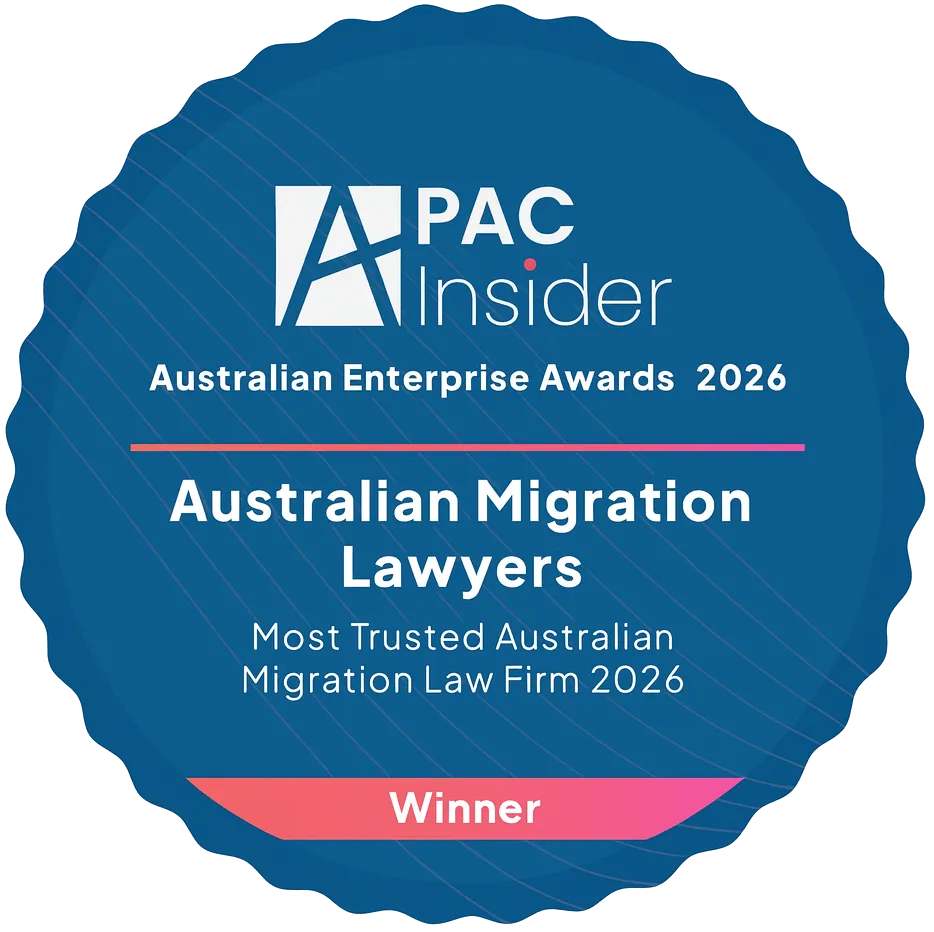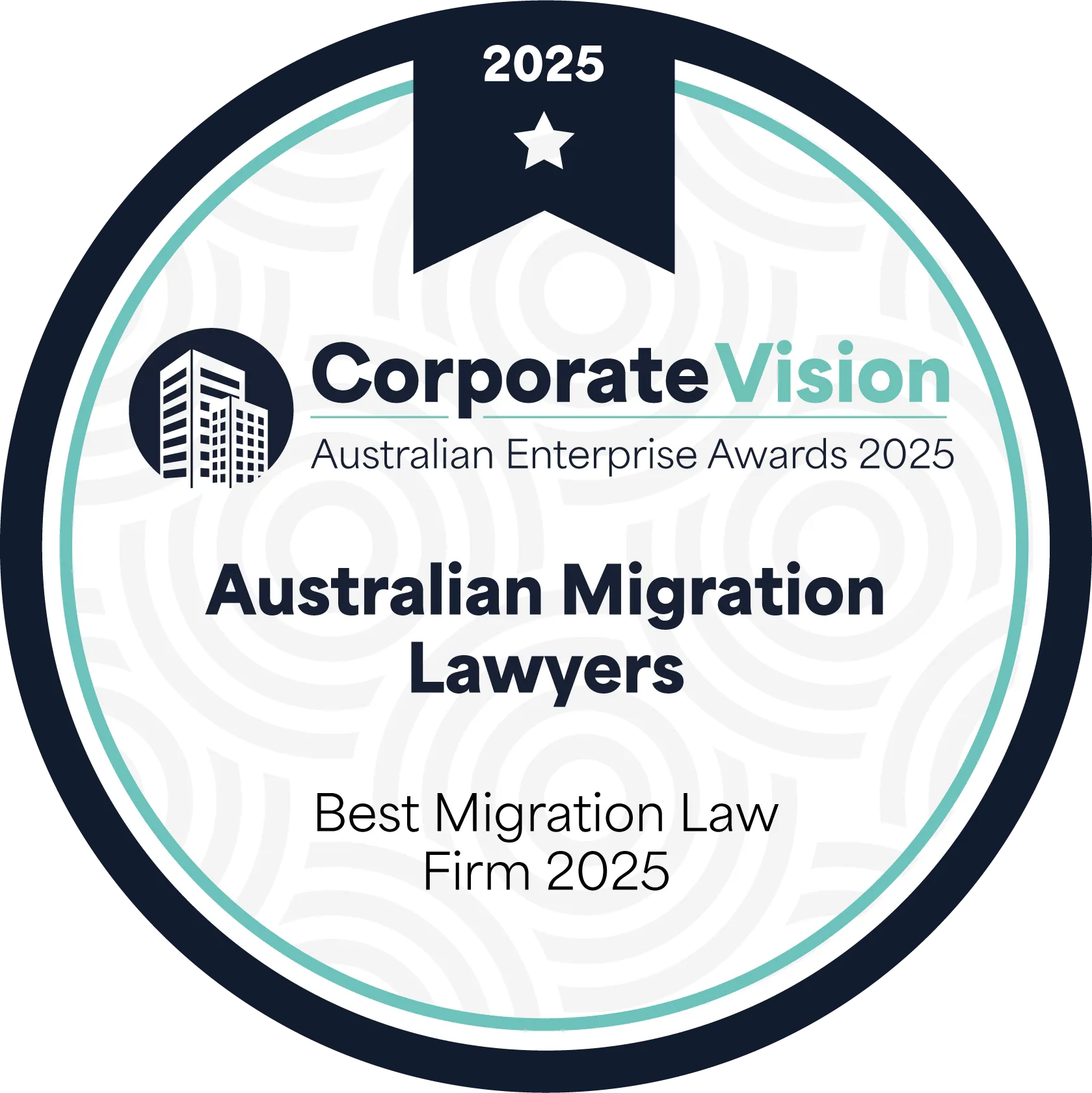Australia's largest independent migration law firm. Open 7 days! Book here.
Need help? We are available 7 days a week.

.webp)

Winner of Most Trusted Australian Migration Law Firm 2023-2026

Ranked 1st for migration law in 2023, 2024 & 2025

Ranked in the top migration lawyers 2023, 2024 & 2025

Ranked the best migration law firm 2024 & 2025

If you are a skilled professional considering applying for a temporary work visa in Australia, you need to know about the significant news for 2025. The Australian Government has introduced major changes to its skilled migration program, aiming to strengthen the system and keep Australia competitive in the global labour market. The former 482 visa is now the Skills in Demand Visa, which operates under a new three-tier system. This new visa introduces updated requirements for both skilled workers and their sponsoring employers.
This article provides a detailed overview of the key changes, new eligibility conditions, and practical tips on how to prepare. We also explain where expert guidance from Australian Migration Lawyers can make all the difference in navigating this new landscape and helping you work in Australia.
Watch the video below to learn more about 482 visa:
The Skills in Demand (SID) visa, which replaces the Temporary Skill Shortage (TSS) subclass 482 visa, is a temporary visa that allows Australian employers to sponsor skilled workers from overseas. Successful applicants can live and work in Australia for up to four years, with a clearer, more defined visa pathway to permanent residency.
One of the most important updates is the reduction in the work experience requirement. As of late 2024, applicants now only need one year of relevant work experience, down from two years. This change opens the door for many talented individuals who were previously ineligible.
The new visa framework is structured into three distinct streams:
Navigating these streams to find where your occupation fits can be a complex task. The criteria for each stream are specific, and understanding the nuances is crucial for a successful application. Australian Migration Lawyers can provide a thorough assessment of your circumstances, help you understand the visa details, and guide you to the stream that best aligns with your qualifications and career goals. Contact our team for tailored support.
A critical component of the new rules involves the updated salary thresholds. To ensure that overseas workers are paid fairly and to protect the local labour market, the Australian Government has increased the minimum salary requirements for the Skills in Demand Visa. As the new financial year begins on 1 July 2025, the new thresholds will be:
These figures represent a notable increase from previous years. For instance, the Core Skills income threshold was $73,150 for the 2024-2025 financial year and $70,000 for the year prior. The Specialist Skills threshold has also been adjusted upwards to attract top-tier talent.
These higher income thresholds signal Australia’s commitment to attracting experienced professionals while preventing the undercutting of local wages. Employers must be prepared to meet these salary levels, and applicants should ensure their offered remuneration aligns with the new requirements to be eligible. Australian Migration Lawyers can assist by reviewing employment contracts and ensuring that all salary and market rate obligations are satisfied before you proceed with your visa application.
As mentioned, the work experience requirement for the former 482 visa was reduced to just one year in December 2024. This change is carried over to the new Skills in Demand Visa, making it more accessible for skilled workers who are earlier in their careers.
Crucially, the new system provides a clearer and more direct pathway to permanent residency. After holding a Skills in Demand Visa for two years and working for the same employer, eligible visa holders can apply for permanent residence through the Employer Nomination Scheme (Subclass 186) visa. This is a significant improvement, offering more certainty to those looking to build a long-term future in Australia.
Mapping out this visa pathway from a temporary visa to a permanent residency visa requires careful planning. A migration lawyer can help you create a clear timeline, ensuring you meet every requirement along the way to secure permanent residency as soon as you become eligible. Australian Migration Lawyers provides professional guidance throughout this entire process, from your initial application to achieving your long-term migration goals.
The updated framework places increased responsibilities on sponsoring employers. The Department of Home Affairs is enforcing stricter compliance to protect both local and migrant workers.
Employers now face more rigorous obligations, including:
With new compliance checks and tougher penalties for breaches, it is essential for sponsors to get everything right from the start.
The visa application process itself has undergone changes. Processing now prioritises applications for roles in critical sectors like healthcare and education, which are listed on the Priority Migration Skilled Occupation List (PMSOL). This means faster processing times for applicants in those fields.
Documentation standards have also been tightened. Applicants must now provide more comprehensive proof of their work experience and qualifications. Furthermore, some roles now require a mandatory skills assessment, even for applicants from countries that were previously exempt. A skills assessment is a formal evaluation to confirm that an applicant has the necessary skills and qualifications for their nominated occupation. This is a crucial step that must be completed correctly.
Understanding the full cost of a visa application is essential for proper planning. The current costs include:
Additional costs may also apply, such as:
Want an estimate of your 482 visa costs? Use our free Fee Calculator to get a clear breakdown
The new system offers greater flexibility for visa holders who wish to change employers. If you are on a Skills in Demand Visa, you can move to a new employer provided they lodge a valid nomination application on your behalf. You generally have up to 180 days after ceasing employment to find a new sponsor.
Importantly, the Department of Home Affairs has confirmed that visa holders who have lodged a valid nomination to transfer to a new employer will maintain their work rights, even if processing times are extended. This provides much-needed stability and flexibility for skilled workers nominated by a new employer.
Whether you are an employer or a visa applicant, here is how you can effectively navigate these recent changes:
Australia’s skilled migration framework is continually evolving to meet the country's economic needs. Staying informed and seeking expert advice from a qualified migration lawyer gives both employers and skilled workers the best chance to succeed under this new system.
If you need support navigating the Skills in Demand Visa or any other Australian visa option, Australian Migration Lawyers is here to help you secure your future in Australia

We have created comprehensive visa guides that outline the ins and outs of visa applications. Get yours today.